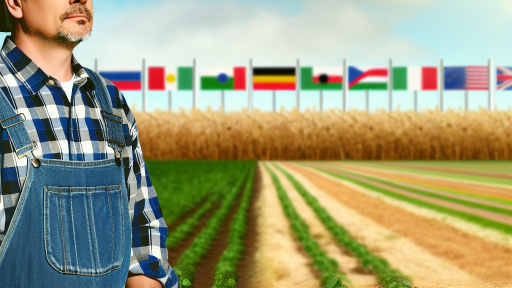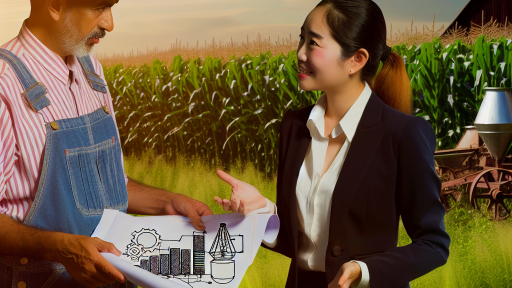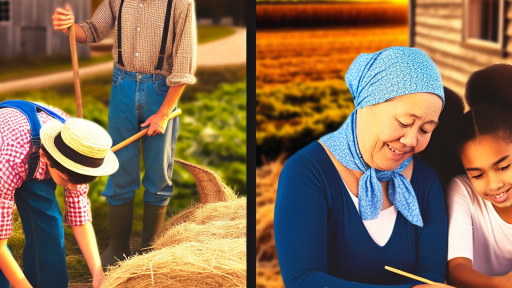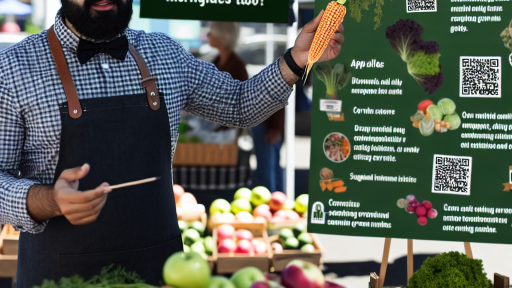Introduction to Sensor Technologies in Agriculture
Sensor technologies are transforming agriculture in unprecedented ways.
These innovations enhance crop yields and promote sustainability.
Farmers rely on accurate data to make informed decisions.
As a result, sensor technologies play a vital role in modern farming.
The Role of Sensors in Agriculture
Sensors collect real-time data on various farming parameters.
They measure soil moisture, temperature, and nutrient levels.
This data allows farmers to optimize irrigation practices.
Furthermore, sensors help monitor crop health and growth stages.
Types of Sensor Technologies
Several types of sensors impact agricultural productivity significantly.
- Soil sensors measure moisture content and nutrient levels.
- Weather sensors track temperature, humidity, and precipitation.
- Crop sensors assess plant health through spectral analysis.
- Livestock sensors monitor animal health and movement.
Benefits of Using Sensor Technologies
The adoption of sensor technologies leads to increased efficiency.
Farmers can conserve water and reduce fertilizer usage.
Additionally, these technologies minimize waste and lower costs.
Ultimately, they contribute to higher crop yields and profitability.
Challenges and Future Prospects
Despite their advantages, sensor technologies face challenges.
Some farmers may lack access to the necessary infrastructure.
Transform Your Agribusiness
Unlock your farm's potential with expert advice tailored to your needs. Get actionable steps that drive real results.
Get StartedMoreover, data management and analysis require expertise.
Moving forward, technological advancements will address these issues.
The future of agriculture will increasingly rely on smart sensors.
Types of Sensors Used in Crop Monitoring
Soil Moisture Sensors
Soil moisture sensors play a vital role in agriculture.
They measure the amount of water in the soil.
This information helps farmers optimize irrigation.
Reduced water waste supports sustainability efforts.
Additionally, these sensors alert farmers to drought conditions.
Temperature Sensors
Temperature sensors are crucial for monitoring crop health.
They help track ambient temperature fluctuations.
These fluctuations affect plant growth and yields.
Moreover, temperature sensors assist in frost prediction.
Farmers can protect their crops from frost damage.
Nutrient Sensors
Nutrient sensors provide valuable information about soil health.
They measure essential nutrient levels in the soil.
This data allows for precise fertilization strategies.
Farmers can apply the right nutrients at the right time.
Consequently, this improves crop yields and plant health.
Integrated Sensor Systems
Integrated sensor systems combine multiple sensor types.
These systems create a comprehensive monitoring solution.
Farmers can view all vital data in one place.
This integration enhances decision-making capabilities.
Ultimately, it supports more efficient farming practices.
The Role of Precision Agriculture in Improving Crop Yields
Overview of Precision Agriculture
Precision agriculture uses data and technology to enhance farming practices.
Showcase Your Farming Business
Publish your professional farming services profile on our blog for a one-time fee of $200 and reach a dedicated audience of farmers and agribusiness owners.
Publish Your ProfileIt focuses on efficiency, sustainability, and crop yield improvement.
This approach utilizes various tools, including sensors and GPS technology.
Benefits of Precision Agriculture
Precision agriculture offers several benefits to farmers.
Firstly, it enables targeted application of resources such as water and fertilizers.
Consequently, this practice reduces waste and lowers costs.
Additionally, it enhances crop yield by optimizing growth conditions.
Farmers experience better decision-making based on real-time data.
Key Technologies in Precision Agriculture
Several technologies play a significant role in precision agriculture.
Soil sensors measure moisture levels directly in the fields.
Drones provide aerial imagery and can detect crop health issues.
Sensor-equipped machinery helps automate tasks efficiently.
Moreover, satellite imagery contributes to landscape analysis.
Improving Resource Management
Effective resource management characterizes precision agriculture.
Farmers can monitor soil conditions and adjust inputs accordingly.
As a result, crop health improves, leading to higher yields.
Water usage also becomes more efficient, conserving this vital resource.
Case Studies of Success
Many farmers have adopted precision agriculture with great success.
For instance, Green Acres Farm increased their corn yield by 20%.
They utilized sensor technology to manage irrigation effectively.
Additionally, Sunny Fields implemented a drone program, boosting overall efficiency.
Future of Precision Agriculture
The future looks promising for precision agriculture technologies.
Advancements in IoT and AI will further enhance capabilities.
Farmers will gain access to even more accurate data analysis.
As a result, crop yields will continue to improve globally.
See Related Content: Strategies for Scaling Your Agribusiness Online
Case Studies of Sensor Technologies Increasing Efficiency in Different Types of Crops
Precision Agriculture in Wheat Production
Farmers utilize soil moisture sensors to optimize irrigation schedules.
This technology reduces water waste significantly.
George Anderson, a wheat farmer in Nebraska, reports impressive yield increases.
He adopted this technology and saw a 20% rise in production.
Enhancing Corn Farming with Drones
Drones equipped with multispectral cameras monitor crop health efficiently.
These sensors identify areas needing immediate attention.
Maria Gomez uses drones on her corn farm in Iowa.
She highlights reduced pesticide use as a major benefit.
This technology improved her corn yield by 15% last season.
Smart Greenhouses for Vegetable Cultivation
Smart sensors control temperature and humidity in greenhouses.
This enhances the growing environment for vegetables.
Michael Thompson manages a greenhouse growing bell peppers.
He employs these sensors to maintain optimal conditions.
As a result, he enjoys a 30% increase in bell pepper output.
Monitoring Fruit Orchards with IoT Devices
IoT devices provide real-time data on soil conditions and plant health.
Showcase Your Farming Business
Publish your professional farming services profile on our blog for a one-time fee of $200 and reach a dedicated audience of farmers and agribusiness owners.
Publish Your ProfileAlice Chang operates an apple orchard in Washington state.
She uses IoT technology to monitor her orchards closely.
This has led to improved pest management strategies.
Alice notes a 25% increase in her apple harvest quality.
Utilizing Sensors in Rice Cultivation
Water-level sensors help rice farmers manage irrigation effectively.
A local cooperative in Arkansas has adopted this practice.
They report reduced flooding issues and better plant growth.
Farmers have achieved a 10% higher yield over previous years.
Precision Livestock Farming Intersecting with Crop Yield
Sensor technologies also extend to livestock management.
Integrated systems monitor soil health and livestock impact on crops.
David Liu’s farm in California utilizes a holistic approach.
This innovative method has improved overall farm productivity by 18%.
Delve into the Subject: Maximizing Farm Potential Through Strategic Collaborations
Data Collection and Analysis
Role of Sensors in Agriculture
Sensors play a crucial role in modern agriculture.
They gather data related to soil conditions, moisture levels, and weather patterns.
As a result, farmers can make informed decisions based on real-time information.
Types of Sensors Used
Various sensor technologies enhance farming practices.
Temperature sensors monitor fluctuations that affect crop growth.
Soil moisture sensors provide insights into irrigation needs.
Additionally, weather sensors track environmental changes impacting yields.
Data Analysis Techniques
Analyzing sensor data can drive effective farming strategies.
Farmers often rely on data analytics software to interpret the information.
This analysis helps in identifying patterns and trends over time.
Consequently, it allows for better crop management decisions.
Impact on Crop Yields
The implementation of sensor technologies significantly boosts crop yields.
Farmers optimize irrigation, reducing water waste and improving efficiency.
Moreover, targeted fertilization practices enhance plant health.
As a result, farms experience increased productivity and profitability.
Challenges and Considerations
Despite the benefits, challenges remain in adopting sensor technologies.
Initial costs can be prohibitive for some farmers.
Additionally, data interpretation requires technical expertise.
Farmers must weigh these challenges against potential yield improvements.
Delve into the Subject: Strategies for Smooth Farm Ownership Transition
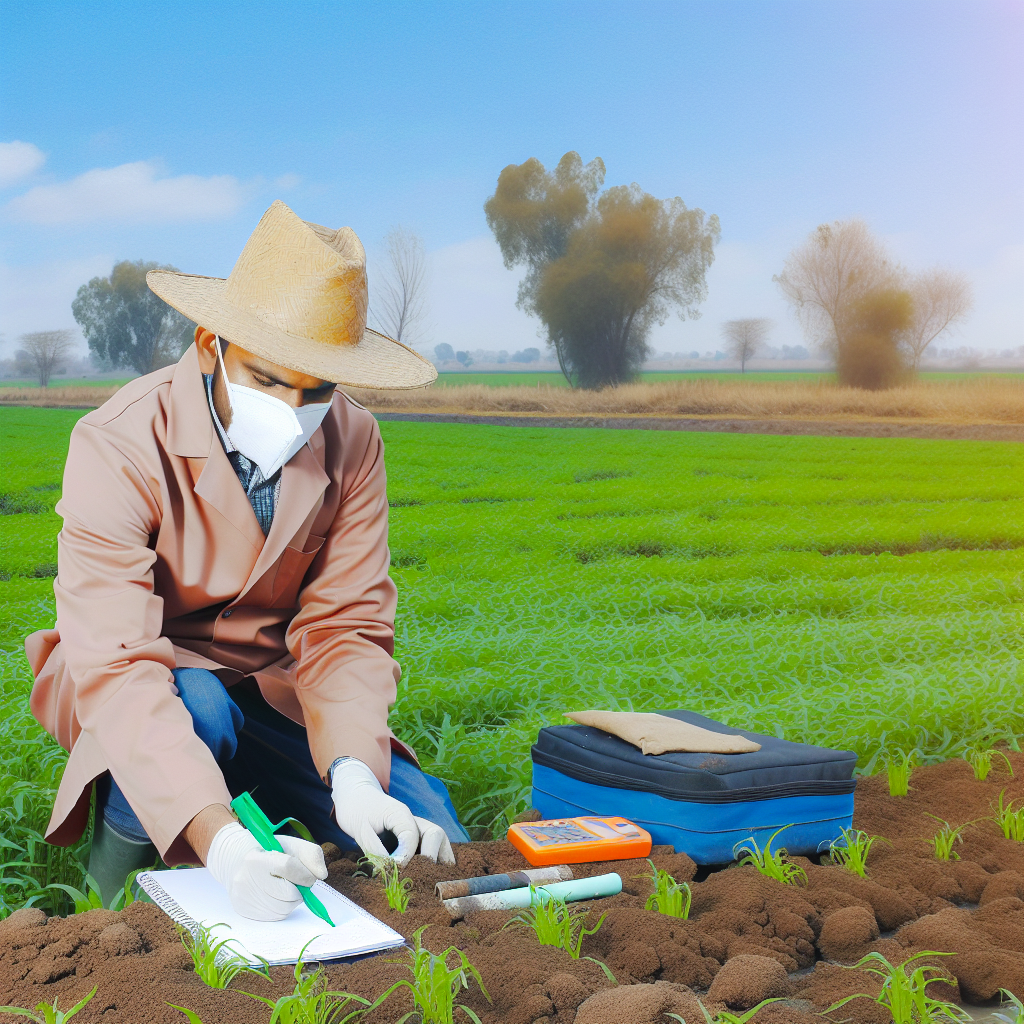
Integration of IoT with Sensor Technologies in Farming
Understanding IoT in Agriculture
The Internet of Things (IoT) transforms agriculture significantly.
Farmers can connect various devices to monitor conditions effectively.
Consequently, they gain real-time information about their crops.
This connectivity enhances decision-making processes in farming.
Types of Sensors Used in Farming
Sensors play an essential role in modern agriculture.
They provide critical data for optimal crop growth.
- Soil moisture sensors measure the moisture level in the soil.
- Temperature sensors monitor ambient temperatures in crop fields.
- Light sensors help farmers assess sunlight exposure on plants.
These sensors work seamlessly with IoT systems to collect data.
Showcase Your Farming Business
Publish your professional farming services profile on our blog for a one-time fee of $200 and reach a dedicated audience of farmers and agribusiness owners.
Publish Your ProfileBenefits of Sensor Integration
Integrating sensors with IoT offers numerous advantages.
Farmers achieve precise irrigation management through real-time data.
This leads to water conservation and reduced costs.
Moreover, immediate alerts about pest infestations can prevent damage.
Ultimately, these technologies increase overall crop yields.
Case Studies of Successful Integrations
Several farms have successfully integrated sensors with IoT technology.
For example, Green Valley Farms uses soil moisture sensors.
This technology optimizes their irrigation systems effectively.
As a result, they have increased their corn yield significantly.
Another example is Sunset Orchards, which employs temperature sensors.
They successfully manage frost risks, preserving their fruit crops.
Challenges in Implementation
Despite the benefits, challenges exist in sensor integration.
One major challenge is the high initial investment for technology.
Furthermore, farmers may require training to use these systems.
Data management and analysis also present potential complications.
However, overcoming these obstacles can yield significant rewards.
Uncover the Details: Disaster Preparedness and Insurance for Farmers
Challenges in Implementing Sensor Technologies in Agriculture
High Initial Costs
Farmers often face significant initial costs when adopting sensor technologies.
Budget constraints prevent many from investing in these advanced systems.
Consequently, smaller farms may struggle to implement necessary technologies.
Technical Complexity
The technical complexity of sensor systems can be daunting for farmers.
Many lack the training needed to utilize these technologies effectively.
Consequently, farmers may miss out on potential benefits.
Data Management Issues
Farmers often encounter difficulties in managing the vast amounts of data generated by sensors.
This challenge includes the analysis and interpretation of sensor data.
Additionally, integrating data into existing farm management systems can be problematic.
Reliability and Maintenance Concerns
Sensor systems require regular maintenance to ensure reliability.
Farmers may lack the resources or knowledge for ongoing upkeep.
As a result, unreliable sensors can lead to inaccurate data collection.
Adaptation to Changing Conditions
Agricultural environments can change rapidly due to weather and other factors.
Such variability may affect the effectiveness of sensor technologies.
Farmers must adapt systems to cope with these changing conditions.
Integration with Existing Practices
Integrating sensor technologies into traditional farming practices can be challenging.
Farmers must balance new technologies with established methods.
This requires time and effort, which some may find daunting.
Future Trends in Sensor Technologies
Advancements in Sensor Technology
Innovations in sensor technology are rapidly transforming agriculture.
Sensors are becoming more precise and reliable.
Farmers can now track environmental conditions in real-time.
This data allows for timely and informed decision-making.
Consequently, these advancements enhance crop productivity.
Showcase Your Farming Business
Publish your professional farming services profile on our blog for a one-time fee of $200 and reach a dedicated audience of farmers and agribusiness owners.
Publish Your ProfileIntegration of IoT and Data Analytics
The Internet of Things (IoT) is revolutionizing farm management.
Sensors connected to IoT collect vast amounts of data.
Data analytics help interpret sensor information effectively.
Farmers gain insights into soil moisture and nutrient levels.
Thus, they can optimize irrigation and fertilization practices.
Impact on Sustainable Farming Practices
Sensor technologies promote sustainable farming methods.
They minimize resource waste, benefiting both farmers and the environment.
By optimizing inputs, farmers reduce their operational costs.
Moreover, sustainable practices help preserve ecosystems.
This alignment between profit and environmental care is crucial.
Future Prospects of Sensor Technologies
Looking ahead, sensor technology will evolve further.
Emerging technologies like drones will enhance data collection.
Moreover, AI-driven analytics will provide deeper insights.
Future sensors may also become smaller and more affordable.
This will make them accessible to more farmers worldwide.
The future of sensor technologies in agriculture is promising.
These innovations will play a vital role in achieving sustainable farming.
Their impact will be felt across the entire agricultural sector.

